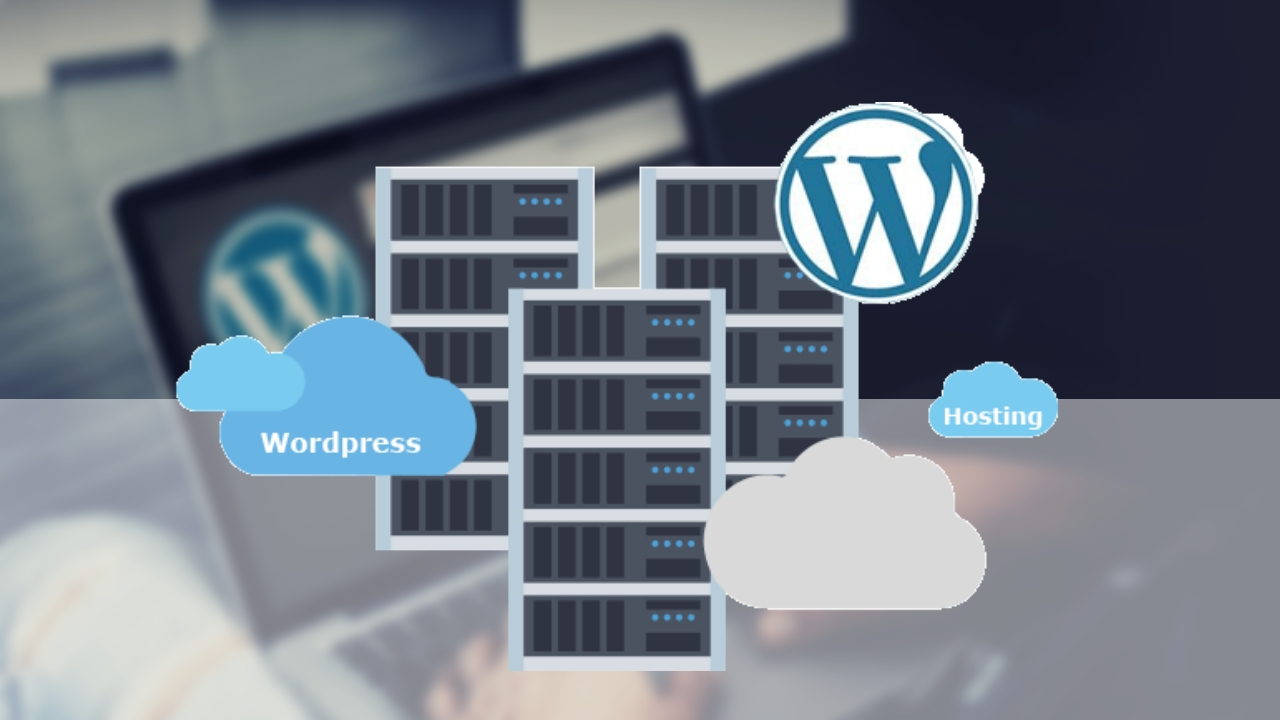WordPress has become the go-to platform for creating websites, whether it’s a personal blog or an e-commerce site. With its user-friendly interface and extensive collection of themes and plugins, it has made website building accessible to everyone. However, choosing the right hosting plan for your WordPress site can make all the difference in terms of performance and reliability. In this article, we will delve into the world of WordPress hosting and help you understand everything you need to know before making a decision.
What is WordPress Hosting?
Before we dive into the different types of WordPress hosting, let’s first understand what it actually means. In simple terms, WordPress hosting is a hosting service that is specifically optimized for WordPress sites. This means that the hosting provider has designed their servers and services to cater to the needs of a WordPress website, ensuring smooth and efficient performance.

Essentially, WordPress hosting is a specialized hosting service designed specifically for WordPress websites
WordPress hosting typically includes features like one-click installations, automatic updates, and built-in security measures. These features make it easier for users to set up and manage their WordPress site. Additionally, WordPress hosting plans often come with specialized support from experts who are well-versed in the platform.
Shared WordPress Hosting
Shared hosting is the most common type of hosting used by beginners and small businesses. As the name suggests, this type of hosting involves sharing a server with other websites. It is a cost-effective option as the cost of the server’s resources is split between multiple websites.
Advantages of Shared WordPress Hosting
- Affordable: Shared hosting is the cheapest option available, making it perfect for those on a tight budget.
- Easy to use: Shared hosting providers usually offer user-friendly control panels, making it easy for beginners to manage their websites.
- Scalable: Most shared hosting plans allow users to upgrade to bigger plans if their website outgrows the current one.
Disadvantages of Shared WordPress Hosting
- Limited resources: Since you are sharing the server with multiple websites, you have limited access to its resources. This can affect your website’s performance during times of high traffic.
- Security concerns: With shared hosting, there is always a risk of one website’s security breach affecting other sites on the same server.
- Lack of control: As the server is managed by the hosting provider, users have limited control over its settings and configurations.
Managed WordPress Hosting
Managed WordPress hosting takes shared hosting one step further by providing additional services and features specifically designed for WordPress sites. This type of hosting is usually more expensive than shared hosting but offers better performance and security.

Managed WordPress hosting enhances shared hosting by offering tailored services and features specifically crafted for WordPress websites
Advantages of Managed WordPress Hosting
- Optimized for WordPress: Managed hosting providers optimize their servers for WordPress, ensuring fast loading times and reliable performance.
- Automatic updates: With managed hosting, users don’t have to worry about updating their WordPress core or plugins manually. This is taken care of by the hosting provider.
- Enhanced security: Managed hosting providers often include additional security measures to protect your website from malicious attacks.
- Expert support: Managed hosting plans come with dedicated support from experts who are well-versed in WordPress and can assist with any issues that may arise.
Disadvantages of Managed WordPress Hosting
- Cost: Managed WordPress hosting plans are more expensive than other types of hosting, making it less suitable for those on a tight budget.
- Limited customization: Since the server is optimized for WordPress, users have limited control over server settings and configurations.
Virtual Private Server (VPS) WordPress Hosting
A virtual private server is where multiple websites share a physical server, but each website has its own virtual resources. It is a step up from shared hosting and offers more control and flexibility.
Advantages of VPS WordPress Hosting
- Better performance: With a VPS, you have access to a dedicated portion of the server’s resources, ensuring better performance for your website.
- Root access: Users have more control over server settings and configurations, making it easier to customize their hosting environment according to their needs.
- Scalability: VPS hosting plans can be easily scaled up as your website grows, ensuring that you have enough resources to handle increasing traffic.
Disadvantages of VPS WordPress Hosting
- Technical knowledge required: VPS hosting requires users to have some technical knowledge to manage their server effectively.
- More expensive than shared hosting: VPS hosting plans are more expensive than shared hosting, making it less suitable for small businesses or personal websites.
Dedicated WordPress Hosting
Dedicated hosting involves leasing an entire physical server for your website. It provides the highest level of control and resources, making it ideal for large businesses or websites with high levels of traffic.

It offers unparalleled control and ample resources, making it perfect for large enterprises or websites experiencing heavy traffic
Advantages of Dedicated WordPress Hosting
- Complete control: With dedicated hosting, users have complete control over the server, allowing them to customize it according to their specific needs.
- Reliability: Since you are not sharing resources with other websites, dedicated hosting ensures consistent performance even during times of high traffic.
- Enhanced security: Dedicated servers offer a higher level of security, reducing the risk of malicious attacks.
- Flexibility: Dedicated hosting allows users to install any software or applications they need on their server, giving them greater flexibility in managing their website.
Disadvantages of Dedicated WordPress Hosting
- Cost: Dedicated hosting is the most expensive option and is not suitable for those on a tight budget.
- Requires technical expertise: As with VPS hosting, dedicated hosting also requires users to have technical knowledge to manage their server effectively.
Managed vs Unmanaged WordPress Hosting
When it comes to managed and unmanaged hosting, the main difference lies in the level of support provided by the hosting provider. Managed hosting plans come with dedicated support and additional services, while unmanaged hosting requires users to manage everything themselves.
Advantages of Managed WordPress Hosting
- Expert support: Managed hosting provides users with dedicated support from experts who are well-versed in WordPress.
- Timesaving: With managed hosting, users don’t have to worry about managing updates or security measures, saving them time and effort.
- Peace of mind: Managed hosting plans offer a higher level of security, giving users peace of mind knowing that their website is protected.
Disadvantages of Managed WordPress Hosting
- Cost: The cost of managed hosting plans is significantly higher than unmanaged hosting, making it less suitable for those on a tight budget.
Advantages of Unmanaged WordPress Hosting
- More control: With unmanaged hosting, users have complete control over their server and can customize it according to their specific needs.
- Cost-effective: Unmanaged hosting is more affordable than managed hosting, making it a popular choice for small businesses and personal websites.
Disadvantages of Unmanaged WordPress Hosting
- Requires technical expertise: Unmanaged hosting requires users to have technical knowledge to manage their server effectively.
- Time-consuming: Users have to manage updates, security measures, and other server configurations themselves, which can be time-consuming.
What to Look for in a WordPress Hosting Provider
Now that we’ve covered the different types of WordPress hosting, you may be wondering how to choose the right one for your website. Here are some factors to consider when looking for a WordPress hosting provider:
- Speed and performance: Look for a hosting provider that offers fast loading times and reliable performance, as this will have a significant impact on user experience and SEO.
- Security measures: Make sure the hosting provider offers robust security measures to protect your website from malicious attacks.
- Scalability: Choose a hosting plan that allows for easy scalability as your website grows.
- Customer support: Look for a hosting provider that offers reliable customer support, preferably 24/7, in case you encounter any issues with your website.
- WordPress-specific features: If you’re opting for a managed hosting plan, make sure it offers features specifically designed for WordPress sites, like automatic updates and one-click installations.
Conclusion
Choosing the right hosting plan for your WordPress site is crucial for its success. Whether you’re a beginner or an experienced website owner, it’s essential to consider your budget, technical expertise, and website needs before making a decision. Hopefully, this guide has helped you understand the different types of WordPress hosting and their advantages and disadvantages, enabling you to choose the best option for your website. Remember, the right hosting plan can make all the difference in terms of website performance and reliability. So take your time, do your research, and choose wisely.
